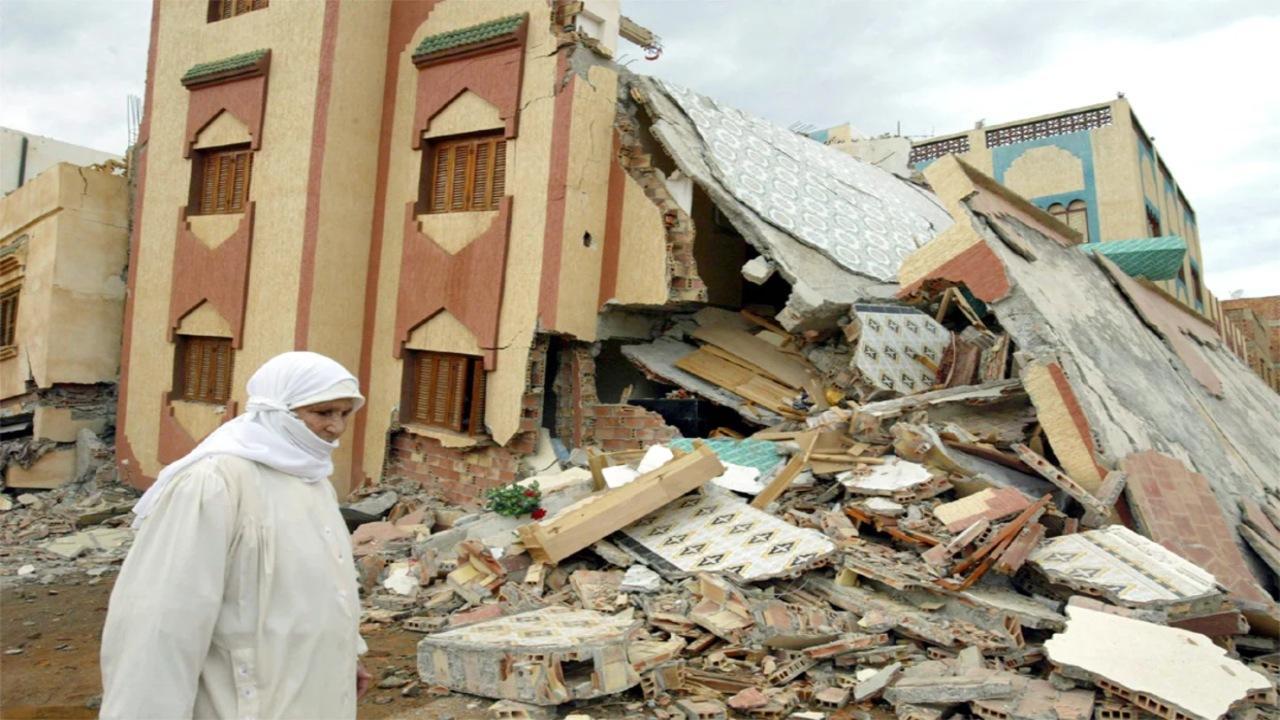A powerful earthquake with a magnitude of 6.8 struck Morocco on Friday night, resulting in the tragic loss of nearly 300 lives and leaving numerous residents to spend the night in the open streets

A woman passes by a collapsed building after an earthquake struck Morocco early Saturday. AFP
A powerful earthquake with a magnitude of 6.8 struck Morocco on Friday night, resulting in the tragic loss of nearly 300 lives and leaving numerous residents to spend the night in the open streets. The United States Geological Survey (USGS) reported that this earthquake is the most potent to hit this particular region of North Africa in over a century.
ADVERTISEMENT
The earthquake originated in Morocco's High Atlas mountain range shortly after 11 p.m. local time, at a relatively shallow depth of 18.5 kilometers (11.4 miles), multiple news reports said. According to the USGS, the epicenter was situated about 72 kilometers (44.7 miles) southwest of Marrakech, a city with a population of around 840,000 and a renowned tourist destination.
Tragically, at least 296 people lost their lives, with another 153 sustaining injuries, as reported by Morocco's state-run Al-Aoula television on Saturday.
The Royal Moroccan Armed Forces have cautioned residents about the ongoing risk of aftershocks, emphasizing the importance of exercising caution and taking safety measures.
Also read: A powerful 6.2-magnitude earthquake shakes northern Chile
The USGS noted that Friday night's earthquake was exceptionally powerful for the region. According to them, earthquakes of this magnitude are unusual but not unprecedented in this area. The USGS also highlighted the high vulnerability of many structures in the affected region to earthquake shaking and anticipated significant damage with widespread consequences.
Reports from state-run Al-Aoula television on Saturday showed numerous buildings collapsed near the epicenter, with thousands of people forced to evacuate their homes following warnings from the country's National Institute of Geophysics about potential aftershocks.
In Marrakech, the densely populated old city witnessed the collapse of several houses, leading residents to manually clear debris while waiting for heavy machinery to arrive. According to local resident Id Waaziz Hassan, the situation was dire. Another resident, Brahim Himmi, reported damaged building facades and shared that people were apprehensive, choosing to stay outdoors in anticipation of further seismic activity.
The tremors were also felt in Rabat, the capital of Morocco, located about 350 kilometers north of the High Atlas mountains, according to eyewitnesses cited by CNN.
 Subscribe today by clicking the link and stay updated with the latest news!" Click here!
Subscribe today by clicking the link and stay updated with the latest news!" Click here!







